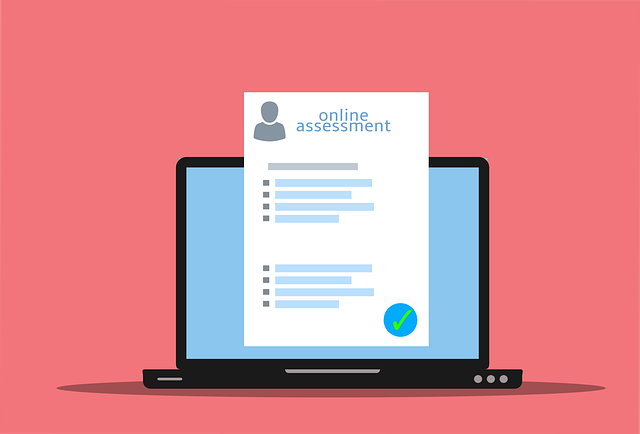10 Best Cheap Shared Hosting Providers [Expert Guide + Reviews]
There was a time where getting your own website was this big and expensive process of hiring developers, designers, programmers, and consultants. Today, anyone can build their own website and host it on one of the hundreds of different hosting servers out there.
But, you don’t want to choose just any host. You’re trying to save money by using the best cheap shared hosting. Shared hosting is a great way to stretch the dollar and get your website up and running quickly.
This guide explains in extensive detail; the best cheap shared hosting providers with bandwidth to spare. Let’s dive right in!
What Is Shared Hosting?
What if you don’t know what shared hosting is? No need to panic! A “shared” host is a place where your website can live along with a variety of other people’s websites as well. You all share the same bandwidth and storage space, so this is a great choice for small websites, new blogs, and small business sites.
Since you’re all sharing space on one physical server, the host is able to keep the operating costs low while still providing enough speed, customer support, and uptime guarantees. This factor benefits you with low monthly fees and added features.
Best Cheap Shared Hosting Providers
- HostGator – Best Overall
- DreamHost – Most Affordable
- A2 Hosting – Best Customer Support
- InMotion – Loaded with Features
- BlueHost – Best Premium
- Hostinger – Best for WordPress
- iPage – Unlimited Accounts and Subdomains
- Hostwinds – Best for Small Businesses
- GoDaddy – Best for Office365 Users
- AccuWeb – Great Uptime
Factors That Developed This List
We’re in the game of features, and low cost here, so let’s talk about some of the factors we considered when compiling this list.
- Cost – You want to save money, that’s why you’re here. One of the most important buying factors we looked at was the cost of hosting with these ten options. They’re all relatively low, if not lower than any other hosting providers.
- Visitor Limit – When you’re bootstrapping your hosting, you may deal with restrictions like how many visitors can pass through your site per month. If you operate a small website, this is no big deal.
- Sites Included – How many sites can you operate for the monthly price? Some are unlimited, and some are not.
- Storage Space – You’re sharing this with a bunch of other websites, so you’ll want to know how much you can have.
- Backups/Domains – If you’re thinking of transferring an existing website to a new host, you better hope the new host allows it. Some do, and some don’t.
- SSL Security – This certificate protects your visitors’ information with a lock next to the URL. This feature is essential if you plan on collecting private data on your site.
- Uptime – One of the most important factors is the host's uptime. While most hosts provide near 100% uptime, the cheaper you get – the further you travel from that magic number.
Now that you understand what shared hosting is and what factors we consider important, let’s break down the best cheap shared hosting providers.
1. HostGator – Best Overall
Pros
- Near perfect uptime – 99.99%
- Website builder
- Variety of plans
- Great customer service
Cons
- No Windows VPS hosting
- No free backups or domains
Pricing Breakdown
It’s tough to beat the price of HostGator, and that’s what brought them to the top of our list. If you pay for a three-year plan, you’re paying $2.75 per month. Annual pricing starts at $5.95 per month.
HostGator offers three shared hosting plans with a wide variety of discounted rates if you sign up for three-year deals and so on. They also offer reduced rates all throughout the year if you sign up through an affiliate link or get a promo code. Usually, discounts only apply for the first year or six months.
Top Features
The best feature of HostGator is the fact that you get unlimited email accounts and a 99.99% uptime guarantee. That basically means that out of 365 days in a year, you’ll experience less than one hour of downtime. That’s the best guarantee in the business, and it’s the reason many people turn to HostGator.
In addition to that, you get an industry-leading customer service 24/7, where you can actually call and talk to a real person. We see this less and less in hosting providers as they continue to outsource customer service and automate everything.
Lastly, they offer a 45-day money-back guarantee so you can purchase the more affordable three-year plan to decide if you like it or not and cancel before the guarantee runs out if you change your mind.
Drawbacks
The main flaws of HostGator revolve around the limitations. This is shared hosting, so you’re obviously not getting a whole suite of features. There are no free backups or domains, which doesn’t mean you can’t do it; it just means you need to pay an added fee for it.
We highly recommend buying your domain from HostGator as well because we’ve been through the migration process, and it’s incredibly taxing.
Another downside is the fact that they don’t offer dedicated hosting for Windows users, so if you’re planning on scaling with HostGator, you might want to reconsider.
2. DreamHost – Most Affordable
Pros
- Cheaper than any other host
- Unlimited visitors
- Strong security
- Cloud hosting
Cons
- Limited support
- No cPanel
Pricing Breakdown
When you want to save money on Hosting, you go with DreamHost – simple as that. The main and most significant feature of this hosting provider is its cost. At $2.59 per month for a three-year contract, it’s even a few cents cheaper than HostGator. So, why did we pick it as number two instead of one? You’ll have to continue to find out!
Top Features
The standout feature is the fact that you have no limitations on how much traffic you can send through your website. That’s a big upside for those of you who are trying to scale. Maybe you already have a solid amount of traffic, but you’re just looking to transfer to something a little more affordable.
Something else they have over HostGator is free backups and domains with an SSL certificate. So, you’re getting the most affordable hosting, with free backups, great security, and unlimited visitors. Why are we in second place?
Drawbacks
DreamHost has an uptime rating of 99.94%, which is a minuscule difference when it all boils down, but it’s still worth mentioning. The biggest downside is their customer service. They don’t have a telephone number, and from our research, the live chat and support tickets aren’t worth the aggravation either.
Plus, they don’t have a cPanel, which is the industry standard. Instead, you get a bespoke dashboard, which we won’t complain about, but it might be unfamiliar for many of you.
3. A2 Hosting – Best Customer Support
Pros
- Lifetime money-back guarantee
- Excellent customer service
- Great WordPress hosting plans
Cons
- Priced a bit higher than others
- 99.95% uptime
Pricing Breakdown
Just like HostGator, A2 offers three different plan options with the cheapest being $7.99 per month if you pay monthly. You can save as much as 20% by spreading the contract out across two years. We recommend doing this because they have a lifetime money-back guarantee.
Of course, the terms and conditions of that are extremely stringent, and you may have to fight a battle that isn’t worth it to get your money back, but at least you know you can terminate the contract whenever you want.
These prices apply to the Linux servers; if you’re running on Windows, you’ll actually end up paying a little more. The Lite plan is $9.99 per month for a single site, five databases, unlimited storage, unlimited transfers, free SSL, and a Plesk control panel.
Top Features
A2 has hands-down the best support team we’ve ever had the pleasure of contacting. The representatives here seem like they’ve gone through extensive training, they understand their product, and they know what can go wrong with it.
You don't realize how important a factor this is until you need it. When you’re running traffic through your website daily, and that results in dollar signs, having issues that prevent your website from running will quickly cost you money if you can’t get it fixed right away.
That’s the primary difference between A2 and DreamHost. DreamHost might be cheaper, but you’ll find that a lack of customer support can cost you more money than it saves you.
In addition to the support, you get unlimited storage, 25 email accounts, free SSL, and a permanent money-back guarantee.
Drawbacks
The main downside here is the price. It’s a bit more expensive than the rest, and if you’re running on Windows, it’s even more expensive. For shared hosting, we’re a little unimpressed, but we think it has something to do with the overhead of managing a support team of this quality.
The uptime of 99.95% doesn’t impress us either. Thankfully, we have confidence that any issues you have with A2 will get quickly nipped in the bud.
4. InMotion – Loaded with Features
Pros
- Best hosting features
- Two websites on the cheapest plan
- Easy to use web builder
Cons
- 25 subdomains
- No Windows servers
Pricing Breakdown
Let’s take a look at InMotions cheapest plan. It starts at $10.99 per month if you pay monthly, and that gets you a free domain, two websites, 50GB SSD storage, unlimited bandwidth, great speeds, ten emails, free SSL, security, marketing tools, and a drag-and-drop web builder with 24/7/365 customer support.
How does all of that sound? Sounds pretty good to us. InMotion easily offers the most bang for your buck. While you’re paying a little more than some of the others, you can spread it out across a lengthier contract and get the payment around $5.99 per month.
Top Features
Our favorite feature of InMotion is the free website transfer with no downtime guarantee. If you need to transfer a website quickly from one host to another, most providers tell you you’re out of luck, and you’re sure to experience some downtime.
InMotion helps prevent that as long as you have a simple website with 1-3 databases. Another feature that stands out amongst the competition is the fact that you can have two websites for the price of one. While their monthly price is higher than anyone else, if you sign up for a longer plan, it’s not as bad, and the pros outweigh the cons for sure.
Drawbacks
We had to dig deep to find anything negative to say here. We understand that the price is high, but we’ve made that obvious already. Our biggest complaint would be that there are limits on traffic and subdomains.
You can only have 360,000 visitors on the lowest plan and 25 subdomains. While that shouldn't be a problem for 99% of you, I suppose the lucky 1% doing that type of traffic might have to upgrade to a more expensive plan.
5. BlueHost – Best Premium
Pros
- Free backups and domains
- Great uptime
- Loaded with features
Cons
- 50GB storage space
- 32,000 monthly visitors on the cheapest plan
Pricing Breakdown
Pricing is pretty standard here with a three-year plan putting you at $2.95 per month. If you’re not afraid of signing up for a long term relationship, you can save some money, but the monthly plan is $7.99.
For everything that Bluehost offers, we wouldn’t even be against signing up for the month-to-month because you’re getting a lot of features for a small price tag.
Top Features
When you sign up for the “basic” plan, which is $7.99 per month, you get one website with 50 GBs of SSD storage, unlimited bandwidth, free SSL, one domain, and 25 subdomains. We’re pretty pleased with these features, and we consider BlueHost to be a premium WordPress host, so if you’re a WP builder, you’ll enjoy this host.
You also get exceptional uptime close to 100% and 24/7 customer support, whether you reach out to them on the phone or via live chat support. BlueHost offers a lot for Windows and Linux users, so we’re sure everyone will find something to love about this host.
Drawbacks
The drawbacks of BlueHost aren’t so much drawbacks as they are, mere limitations. If you’re trying to scale with this host, by the time you even experience its negatives, you’ll be making enough money to move on to a more expensive package so it won’t even matter.
You can only use 50GBs of storage on the cheapest plan, which is the smallest storage we’ve seen, but as we said, you’ll scale up over time. The main problem is the 32,000 monthly visitors that won’t change no matter what plan you’re on.
Once you hit that ceiling, it simply means it’s time to switch over to VPS hosting, which BlueHost offers as well!
6. Hostinger – Best for WordPress
Pros
- Easy to learn for WordPress
- Multilingual support team
- Good uptime
Cons
- No dedicated hosting
- No phone support
Pricing Breakdown
Hostinger offers three major plans for its shared hosting services. The single shared hosting is the best choice for beginners, and it offers you one website, one email, 100GB bandwidth, SSL, free domain, 99.99% uptime, and the control panel.
The features are nice, but the price tag is a little more than we would have hoped. If you elect to pay monthly, you’ll get stuck with a $9.99 per month fee. The good news is, if you decide to spread that out across a few years, you can get your payment as low as $0.99.
Top Features
While you only get one website, if you’re using it for WordPress, you’ll like Hostinger. It comes with WordPress acceleration, which makes migrating your site extremely easy, and they offer 24/7/365 customer support and a 99.9% uptime guarantee.
Best of all, it only takes one small upgrade to the next plan to get unlimited everything, including websites, emails, and bandwidth.
Drawbacks
There’s a few downsides here and one being the fact that you don’t get free daily backups. That means you need to manually go into your site every time you want to back it up and pay for it. Many cheaper hosting providers have this problem, and while they back up your site for free once a month or so, you’ll likely want to do it more.
Another issue is that they don’t have dedicated hosting, so you’re limited in terms of scaling. Granted, the business plan offers unlimited websites, 4X resources, and 100 subdomains with daily backups, so maybe not.
7. iPage – Unlimited Accounts and Subdomains
Pros
- Great support team
- Unlimited accounts and subdomains
- 500,000 visitor limit
Cons
- Limited plan choices
- Poor uptime
Pricing Breakdown
This factor might be a downside to some, but we like it when people keep things simple. iPage doesn’t overcomplicate things with 15 different plans and staggered features across them all, they have one plan, and that’s it.
This plan costs $7.99 per month if you pay monthly, and you get all the features they have to offer in this one plan, so you know exactly what iPage is all about.
Top Features
First, if unlimited space, bandwidth, domains, and databases sound good to you, then you might like iPage. They also throw in a free SSL certificate and a free domain for the first year. After that, you’ll have to pay $14.99.
With iPages web builder, you can customize six pages and install WordPress in one click. They offer hundreds of templates and a customizable email address that you can fit to match your domain.
With all of these features comes an online help center and ticketing system. Plus, they have 24/7 phone and chat support and a 30-day money-back guarantee.
Drawbacks
It really seems like iPage is a solid shared hosting option, so why is it number seven in this breakdown? First, their uptime is around 99.94% making it one of the worst we’ve seen. Again, this might be an issue that goes unnoticed for most, but you'll notice it for those pumping high volume through their website.
iPage also charges you $100 for backups, which is a little ridiculous. That’s a big enough negative to turn us away.
Overall, it’s a great cheap shared hosting provider, and one we can always find a reason to recommend to the readers.
8. Hostwinds – Best for Small Businesses
Pros
- Great uptime
- Many plan options
- Solid customer service
Cons
- Confusing pricing
- Faulty money-back guarantee
Pricing Breakdown
Pricing is simple with Hostwinds; they offer three different options. That’s unless you get into the business plans, then they offer three plans there as well. Their pricing is the most confusing out of every host we’ve looked at so far.
The basic offering starts at $8.99 per month if you pay monthly, and that gets you unlimited bandwidth, space, and one domain. You really can’t beat that.
If you’re a small business and just looking for an affordable host that won’t put limitations on what you can do, this seems like a solid option.
They also include quite a bit of features in their most basic plan.
Top Features
In addition to getting unlimited space and bandwidth, you get an SSD, free website transfers, unlimited emails, cPanel, unlimited databases, free SSL, free domain, dedicated Ip, unlimited subdomains, free Weebly website builder, and the list goes on.
Hostwinds offers a lot, so we’re not surprised if you’re wondering why it’s so far down on our list.
Drawbacks
The main drawback comes from their money-back guarantee. The company claims to have a 60-day money-back guarantee, but you find that they’re a little deceiving with their terms when you read the fine print.
Plus, their pricing structure is very confusing for someone who doesn’t have experience shopping around for hosts. We think it might be another deception tactic to make people believe they need a more expensive plan than they do.
For shared hosting, there’s no reason to have six different plans.
9. GoDaddy – Best for Office365 Users
Pros
- Great customer support
- Strong reputation
- Good for both Windows and Linux
Cons
- No cloud hosting
- Limited email plans
Pricing Breakdown
Shared hosting is at the forefront of everything that GoDaddy does (maybe other than selling domains), and they’re a popular choice for small businesses and Office365 users. They offer four different plans, which we found very easy to understand, and the features they each offer make sense for the price point.
The economy plan is the cheapest option, and it’ll run you $7.99 per month. For that, you get 24/7 support, 100GBs of storage, unlimited bandwidth, free email, and a free domain.
We would have hoped to see a little bit more for $7.99 because that’s a pretty standard price but substandard features.
Top Features (and Drawbacks)
The biggest downside is actually the only upside of GoDaddy, and that’s their features; they don’t offer anything out of the ordinary other than a standard shared hosting service with decent uptime, one website, and a free domain.
If you decide to upgrade to the Deluxe plan, you’ll get unlimited websites, storage, and domains, but they don’t offer anything like a website builder or even a free SSL included with your purchase.
10. AccuWeb – Great Uptime
Pros
- Best uptime
- Great dedicated hosting
- Linux or Windows
Cons
- No unlimited email
- No month-to-month hosting
Pricing Breakdown
If you’re looking for shared hosting on Windows, AccuWeb is offering some of the lowest prices at $3.52 per month if you sign up for two years. You can host one website, use their control panel, and they offer cloud-based options as well.
The company has over 17 years of experience and more than 55,000 websites on their servers.
Top Features
It appears that customer service is something that AccuWeb does right. They have an average ticket response time of 11 minutes and a live chat response time of fewer than ten seconds. If you’re caught in a bind, you won’t have to struggle to get a problem fixed with AccuWeb.
Another one of their best features is their 99.99% uptime guarantee. That means, if you experience more than a few minutes of downtime per year, they’ll refund a portion of your money to help accommodate you.
Drawbacks
The downside we see is similar to the problem we had with GoDaddy; they’re pretty bare-bones in what they offer. While they offer solid hosting that seems to work for a lot of people, they don’t offer much else.
You don’t get an email, you don’t get a domain, you don’t get free transfers, and you can’t pay month-to-month, which means you need to commit to a long contract no matter what.
How to Choose the Best Cheap Shared Hosting
Before you get ready to commit to any of the hosts outlined above, let’s talk briefly about what you should consider before making a decision. There are a few buying factors similar to what we talked about in the beginning that we want to make sure you understand.
Ease of Use
You have a business to run, a blog, or something to do that takes you away from tending to your website. You hire a host and a web developer to take things like this out of your hands for a reason. If you wanted to spend hours per day on your website, you’d have gone into a different business.
We get it; you need something that is easy to jump right into and get started. That’s why you're here.
The best shared hosting providers will make it easy for you to create a website or transfer an existing one. A lot of the options recommended above allow you to do both of these.
If you’re on a shoestring budget and need to build and design the website yourself, we would suggest going with a host that provides a free website builder, so you don’t have to add additional expense.
Uptime Guarantee
You want to get as close to 100% uptime as possible. As mentioned, if you’re not driving hundreds of visitors through your website every day, you might not even notice the downtime. That’s not to say it’s not there, and that’s not to say you won’t care at some point.
The cost of paying for a host with high uptime isn’t any different than paying for one with low uptime, so make sure you make the right choice now, so you don’t have to change anything later.
Customer Support
The help and support you receive from a hosting provider is reason enough to pay a few bucks more. When you need them most, you need a host who will come through and solve problems rather than create new ones.
Have you ever contacted a customer support line, and they end up giving you a giant list of tasks to do to fix the problem? Now, not only are you losing time and money by calling them, you’re losing more time and money by spending an hour or two going through the motions.
You need a customer support team who is there to solve your problems, and they have the infrastructure to get it done efficiently.
Limitations
Each shared hosting provider has limitations but some more than others. When someone originally thinks of getting shared hosting, they probably think their site will run slowly because you’re sharing it with other people, but that’s almost never the case.
During our research and testing for this guide, we learned that shared hosting is more common than you think, and most of the popular hosting providers in this guide offer shared hosting as their primary service.
That said, shared hosting can result in limitations regarding bandwidth, traffic, and storage. Most of the hosts here do not have limitations that you’ll ever even notice unless you’re flowing tons of traffic through your site.
Just make sure you’re reading all the fine print, looking at all the features, and paying attention to anything that says unlimited.
Best Cheap Shared Hosting: Summary
Regardless of the shared hosting provider you choose, you’ll be fine with any of the options on this list. They’re all solid choices with great uptime, excellent customer service, and features that make building and hosting a website much easier.
Let’s take a quick look at our top ten options again:
- HostGator – Best Overall
- DreamHost – Most Affordable
- A2 Hosting – Best Customer Support
- InMotion – Loaded with Features
- BlueHost – Best Premium
- Hostinger – Best for WordPress
- iPage – Unlimited Accounts and Subdomains
- Hostwinds – Best for Small Businesses
- GoDaddy – Best for Office365 Users
- AccuWeb – Great Uptime
If you’re looking for the best of the best, we recommend going with either HostGator or DreamHost. Both of these providers offer the most features for the least amount of money. The main upside to HostGator is their support staff.
You can have an issue in the middle of the night on Christmas and call up someone from HostGator and get them right on the phone. You won’t have that luxury with DreamHost.
HostGator also has a much better uptime rating than DreamHost. The only reason we would choose DreamHost over HostGator is if we were trying to save a few bucks.
FAQs
Here are some of the most frequently asked questions revolving around cheap shared hosting providers.
What type of business should use shared hosting?
Any business can use shared hosting, but you need to keep the traffic limitations in mind. If you’re bringing in more than 50-100k visitors per month on your website, you won’t likely be able to use shared hosting because you’ll take up too much bandwidth and crash the site.
What is the difference between shared, VPS, and dedicated hosting?
Shared hosting is when you share the resources with other websites. There may be a certain amount of bandwidth and storage split across 15 different websites. That’s why shared is the ideal choice for small businesses and websites.
VPS stands for Virtual Private Server, which is when your site is hosted on a shared server, but you have improved security and resources. Dedicated means you have your own server and usually yields the highest security level and the most benefits.
Should I use cloud hosting or shared hosting?
Cloud hosting is also affordable, and it’s becoming more and more popular. Shared hosting involves a physical server that has obvious risks of theft and damage. We think if you’re storing highly confidential information, you might be better off using cloud hosting as opposed to shared.
There’s no right or wrong answer here, and it helps to understand the two to decide for yourself.













